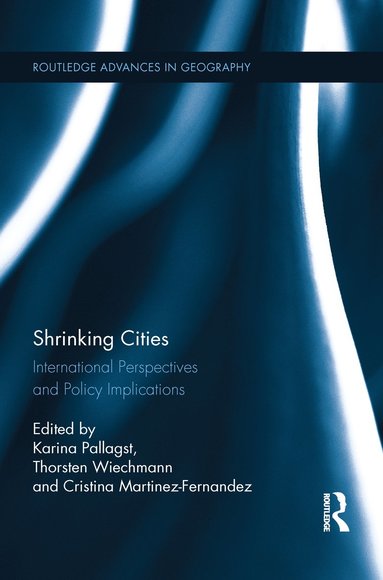
Fler böcker inom
- Format
- Häftad (Paperback / softback)
- Språk
- Engelska
- Serie
- Routledge Advances in Geography
- Antal sidor
- 318
- Utgivningsdatum
- 2015-09-16
- Förlag
- Taylor & Francis Ltd
- Dimensioner
- 229 x 152 x 18 mm
- Vikt
- ISBN
- 9781138952874
- 449 g
Shrinking Cities
International Perspectives and Policy Implications
Häftad,
Engelska, 2015-09-16
663
- Skickas från oss inom 7-10 vardagar.
- Fri frakt över 249 kr för privatkunder i Sverige.
Finns även som
Passar bra ihop
De som köpt den här boken har ofta också köpt Original Sin av Jake Tapper, Alex Thompson (häftad).
Köp båda 2 för 862 krKundrecensioner
Har du läst boken?
Sätt ditt betyg »
Fler böcker av författarna
-
Growth Management in the US
Karina Pallagst
-
ARL Reader Planungstheorie Band 2
Thorsten Wiechmann
-
ARL Reader Planungstheorie Band 1
Thorsten Wiechmann
-
50 Jahre Dortmunder Raumplanung
Dietwald Gruehn, Christa Reicher, Thorsten Wiechmann
Övrig information
Karina Pallagst is professor for International Planning Systems at Kaiserslautern University's faculty of Spatial Planning. Thorsten Wiechmann is head of the Department of Spatial Planning and Planning Theory at TU Dortmund University. Cristina Martinez-Fernandez is a Senior Policy Analyst on Employment and Skills, Green Growth and South-East Asia at the Organisation for Economic Co-operation and Development (OECD), Local Economic and Employment Development (LEED) programme.
Du kanske gillar
-
Peak Human
Johan Norberg
Häftad -
Peak Human
Johan Norberg
Inbunden


